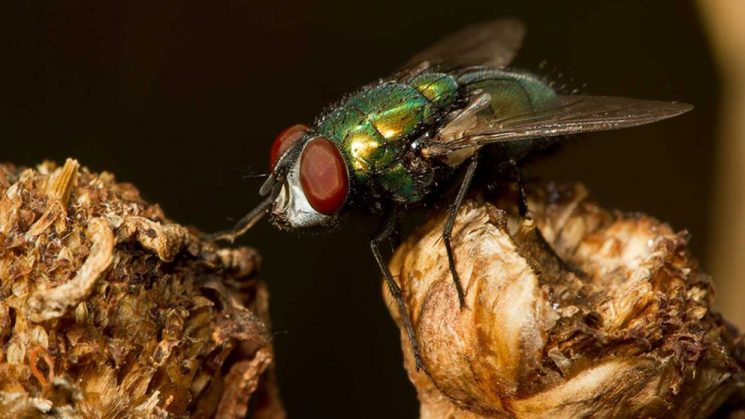

Written by Melinia Florez-Cuadros
At NC State, Dr. Max Scott and his lab are engineering transgenic strains of sheep blowfly, which is a pest species in Australia but also serves as model system for the New World screwworm, a closely related blowfly. Screwworm has been eradicated from all of North and Central America. Currently millions of screwworm are reared in a factory in Panama, sterilized by radiation and released along the Colombia border to prevent the pest from moving back to Panama from South America. Additionally, the Scott lab has developed transgenic sheep blowfly that produce only males, a technology that will improve the screwworm genetic control program.
Recently the lab hosted a visit of Dr. Jere Dick, APHIS Associate Administrator, Dr. Esteban Giron, Panama Vice Minister for Agriculture, Dr. Antonio Arroyave and Dr. Francisco Padilla, Co-directors of the Panama-United States Commission for the Eradication and Prevention of Screwworm (COPEG), and COPEG administrative team. New proposals for engaging Central America countries in emergency response and support of future activities of COPEG are necessary for the continuity of the program, as well as the expansion to South America.
Dr. Melina Florez-Cuadros, a member of the Scott lab, described to guests the advances in transgenics strains of blowfly in Raleigh and screwworm in Panama.
Visitors were given a tour of the facilities and a demonstration on injecting blowfly eggs with DNA.
Dr. Florez-Cuadros is the recipient of the Dean’s Diversity Postdoctoral Fellowship 2017-2018 offers by the College of Agriculture and Life Sciences. She is developing efficient methods for making transgenic blowfly and Cas9-mediated genome editing.